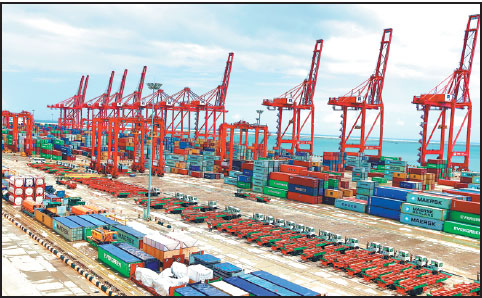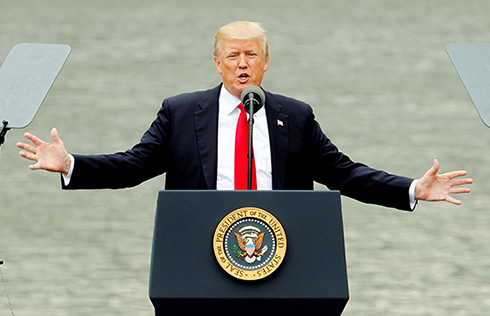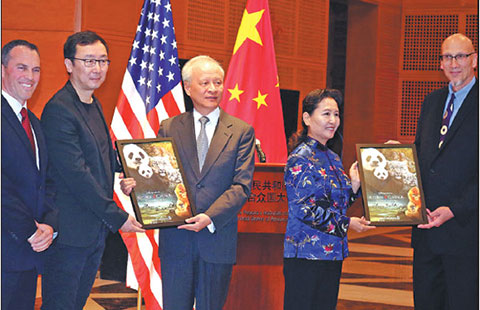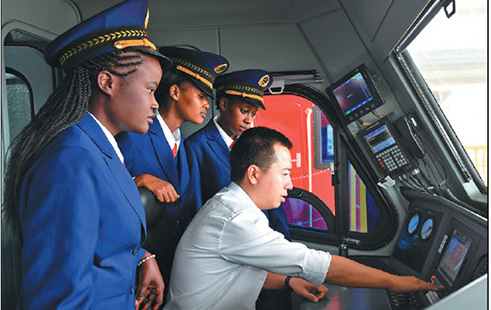Chinese investments in major projects benefit local people
 |
|
Port of Colombo is a joint investment by China and Sri Lanka as a project of the Belt and Road Initiative. [Photo By Huang Haimin / Xinhua] |
Initiative Will Build Comprehensive Connections Between Economies
For Yuri Kannangara, Chinese investment has brought positive changes not only to his own life, but also to the lives ofmany local people.
A seniormanager at a SinoSri Lankan container terminal joint venture in the Port of Colombo, Yuri told Xinhua News Agency that the company,which was established by ChinaMerchants Group and the Sri Lanka Ports Authority, not only means he enjoys a decent salary and training opportunities,but it has also boosted the local economy.
Following China's launch of the Belt and Road Initiative, an increasing number of cooperative projects are being carried out along the two routes binging benefits to local people.
First proposed by President Xi Jinping in 2013, the Silk Road Economic Belt and the 21st Century Maritime Silk Road have now been welcomed by more than 100 countries and international organizations and more than 60 of them have signed cooperation agreements with China.
"The progress of China's Belt and Road Initiative is conducive to expanding global demand and promoting global economic growth," said Liang Haiming, chief economist of the China Silk Road iValley Research Institute.
The core of the initiative is to promote connectivity of infrastructure,featuring transportation networks,industry clusters and economic corridors, so as to give fresh impetus to global economic growth.
In the past three years, China has invested more than $50 billion in countries and regions along the routes of the Belt and Road.
That investment has kickstarted a number of major projects, such as railways,power plants, and other infrastructure,said Ren Zeping,chief economist of the Founder Securities.
"The world suffers from an infrastructure financing gap of $7 billion and it is important to channel the global capital into the real economy and infrastructure," said Wang Yiwei, an international relations professor atRenmin University of China. "It will help reduce the challenges faced by the world economy and help achieve global economic rebalancing."
For example, Afghanistan,which suffers from slow economic development because of repeated wars and conflicts,is hoping to accelerate its social and economic developmentby improving its links with China's Xinjiang Uygur autonomous region, said Wang.
In November 2016, the United Nations urged the international community to embrace the Belt and Road Initiative to promote Afghanistan's economic and social development.
Chinese companies have also won the contracts to build highspeed railways in Indonesia and Russia.
"Such projects will also bewelcomed in Africa and South America, and we should help more countries build highspeed railways and ultimately connect the whole world," said Huang Renwei, deputy head of the Shanghai Academy of Social Sciences, at a recent forum.
Seen from a broader perspective,interconnectivity is not confined to infrastructure construction, said Cao Yuanzheng,chief economist ofBank of China. It also includes political, trade, financial connectivity and human communications.
Wang of Renmin University of China also said that interconnectivity should also include cooperation in "soft infrastructure", such as free trade area arrangements,which can supplement the role of the traditional trade negotiation framework of World Trade Organization to ensure free trade ispromoted.
And the Belt and Road Initiative should be expanded to involve such developed countries as the United States and the United Kingdom more closely,Wang said.
xinzhiming@chinadaily.com.cn




















